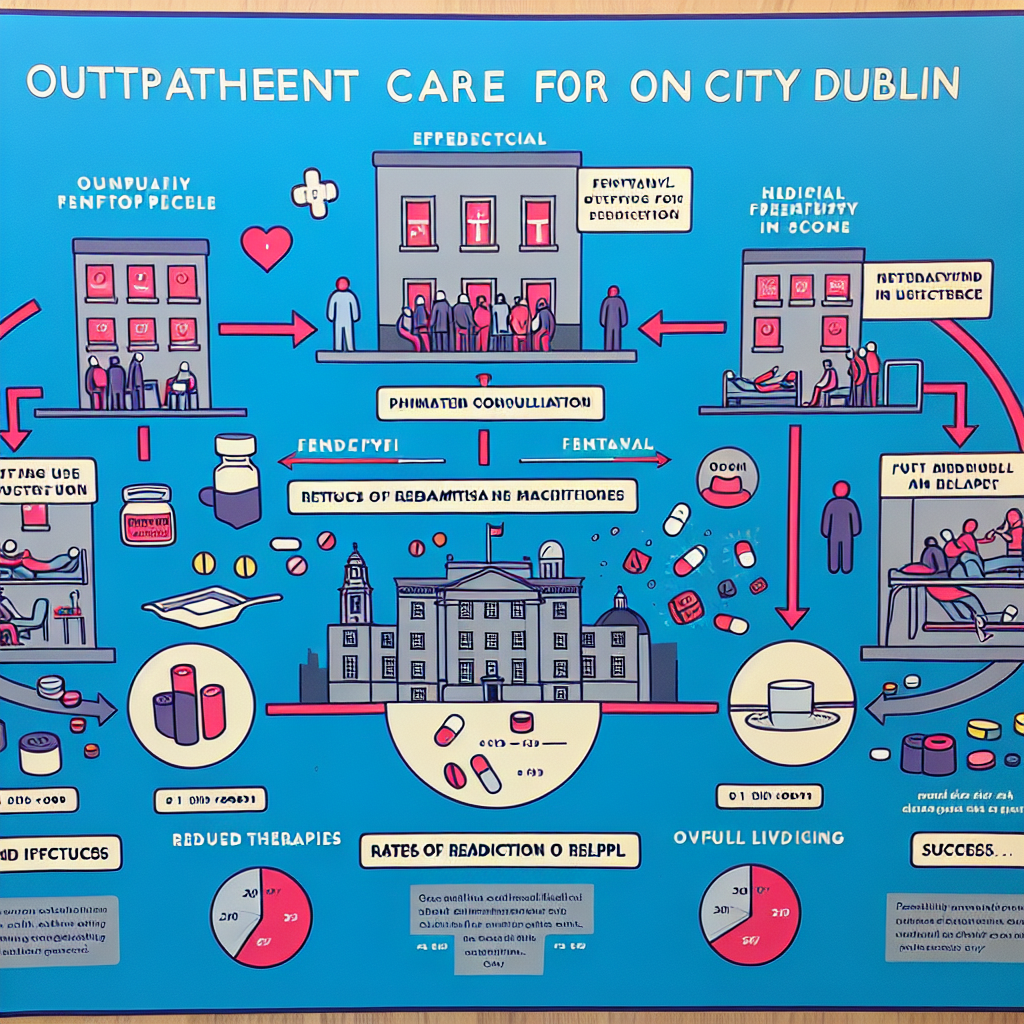-
Table of Contents

“Family: The Heartbeat of Holistic Healing in Fentanyl Addiction Recovery”
Introduction
The Role of Family in Holistic Rehab for Fentanyl Addiction
Fentanyl addiction is a pervasive and life-threatening issue that requires a comprehensive approach to treatment. Holistic rehabilitation programs, which address the physical, emotional, and psychological aspects of addiction, have proven to be particularly effective. Central to the success of these programs is the involvement of the family. The role of family in holistic rehab for fentanyl addiction cannot be overstated, as family members provide essential emotional support, help to create a stable and nurturing environment, and participate in therapeutic processes that promote long-term recovery. By fostering open communication, understanding, and mutual support, families can significantly enhance the effectiveness of holistic rehab programs, ultimately contributing to the sustained well-being of their loved ones.
The Importance of Family Support in Holistic Rehab for Fentanyl Addiction
Family support plays a pivotal role in the holistic rehabilitation of individuals struggling with fentanyl addiction. This potent opioid, known for its high risk of dependency and overdose, requires a comprehensive approach to treatment that addresses not only the physical aspects of addiction but also the emotional, psychological, and social dimensions. In this context, the involvement of family members can significantly enhance the effectiveness of holistic rehab programs, providing a foundation of love, understanding, and encouragement that is crucial for long-term recovery.
To begin with, the emotional support offered by family members can be a powerful motivator for individuals undergoing rehab. The journey to recovery is often fraught with challenges, including withdrawal symptoms, cravings, and emotional turmoil. During these difficult times, the presence of a supportive family can provide a sense of stability and reassurance. Knowing that loved ones are invested in their recovery can inspire individuals to stay committed to their treatment plans, even when the process becomes arduous. This emotional backing can also help mitigate feelings of isolation and despair, which are common among those battling addiction.
Moreover, family involvement in rehab programs can facilitate better communication and understanding between the individual and their loved ones. Addiction often strains relationships, leading to misunderstandings, resentment, and a breakdown in trust. By participating in family therapy sessions, members can learn about the nature of addiction, its impact on behavior, and the challenges of recovery. This shared knowledge fosters empathy and patience, enabling family members to provide more effective support. Additionally, open communication can help resolve lingering conflicts and rebuild trust, creating a more harmonious and supportive home environment.
In addition to emotional and relational benefits, family support can also contribute to the practical aspects of recovery. For instance, family members can assist with logistical challenges, such as transportation to and from rehab sessions, managing daily responsibilities, and ensuring a safe and drug-free living environment. These practical forms of support can alleviate some of the stress and burden on the individual, allowing them to focus more fully on their recovery journey. Furthermore, family members can help monitor progress and provide accountability, encouraging adherence to treatment plans and preventing relapse.
Another critical aspect of family involvement in holistic rehab is the promotion of healthy lifestyle changes. Recovery from fentanyl addiction often requires significant adjustments in daily habits and routines. Family members can play a crucial role in supporting these changes by adopting healthier behaviors themselves and creating a positive, nurturing environment. This might include preparing nutritious meals, encouraging physical activity, and participating in stress-reducing activities together. By modeling and reinforcing healthy behaviors, family members can help individuals develop new, positive habits that support their overall well-being and reduce the risk of relapse.
Finally, the long-term success of rehab often hinges on the continued support of family members even after formal treatment has ended. Recovery is an ongoing process, and the transition back to everyday life can be challenging. Family members can provide a vital safety net during this period, offering encouragement, monitoring for signs of relapse, and helping to navigate any setbacks. Their ongoing involvement can help individuals maintain their progress and continue to build a fulfilling, drug-free life.
In conclusion, the role of family in holistic rehab for fentanyl addiction cannot be overstated. Through emotional support, improved communication, practical assistance, promotion of healthy lifestyle changes, and ongoing encouragement, family members can significantly enhance the effectiveness of rehab programs and support long-term recovery. By working together, families can help their loved ones overcome addiction and reclaim their lives, fostering hope and healing for all involved.
How Family Therapy Enhances Recovery in Holistic Fentanyl Addiction Treatment
Family therapy plays a pivotal role in holistic rehab for fentanyl addiction, offering a comprehensive approach that addresses not only the individual struggling with addiction but also the family unit as a whole. This integrative method recognizes that addiction is not an isolated issue but one that affects and is affected by the family dynamics. By involving family members in the recovery process, holistic rehab centers aim to create a supportive environment that fosters healing and long-term sobriety.
One of the primary ways family therapy enhances recovery is by improving communication within the family. Addiction often leads to strained relationships, misunderstandings, and a breakdown in communication. Through guided therapy sessions, family members learn to express their feelings and concerns in a constructive manner. This open dialogue helps to rebuild trust and understanding, which are crucial for a supportive home environment. Improved communication also allows family members to better understand the challenges faced by their loved one, fostering empathy and reducing feelings of isolation for the person in recovery.
In addition to improving communication, family therapy addresses the underlying issues that may contribute to addiction. Many individuals struggling with fentanyl addiction have experienced trauma, mental health issues, or dysfunctional family dynamics. By involving the family in therapy, these underlying issues can be identified and addressed collectively. This holistic approach ensures that all contributing factors are considered, leading to more effective and sustainable recovery outcomes. Family members also gain insights into their own behaviors and patterns, which can be instrumental in creating a healthier family dynamic.
Moreover, family therapy provides a platform for education about addiction and recovery. Many family members may not fully understand the nature of addiction, leading to misconceptions and stigma. Through therapy, they learn about the complexities of addiction, the impact of fentanyl on the brain and body, and the recovery process. This knowledge empowers them to provide better support and reduces the likelihood of enabling behaviors. Educated family members are more likely to encourage healthy habits and reinforce the coping strategies learned in rehab, contributing to a more stable and supportive recovery environment.
Another significant benefit of family therapy in holistic rehab is the development of a strong support system. Recovery from fentanyl addiction is a challenging journey, and having a reliable support system can make a substantial difference. Family therapy helps to strengthen these bonds, ensuring that the individual in recovery feels supported and understood. This support extends beyond the rehab center, providing a safety net that can help prevent relapse. Family members learn how to offer encouragement, set healthy boundaries, and recognize signs of potential relapse, all of which are crucial for long-term recovery.
Furthermore, family therapy promotes accountability within the family unit. When family members are involved in the recovery process, they become more invested in the outcome. This shared responsibility encourages everyone to work together towards the common goal of sobriety. The individual in recovery is more likely to stay committed to their treatment plan when they know their family is actively involved and supportive. This collective effort creates a sense of unity and purpose, which can be incredibly motivating for someone battling addiction.
In conclusion, family therapy is an essential component of holistic rehab for fentanyl addiction. By improving communication, addressing underlying issues, providing education, developing a strong support system, and promoting accountability, family therapy enhances the recovery process and contributes to long-term sobriety. The involvement of family members not only supports the individual in recovery but also fosters healing and growth within the entire family unit. This holistic approach recognizes the interconnectedness of individual and family well-being, ultimately leading to more effective and sustainable recovery outcomes.
Q&A
1. **Question:** How does family involvement impact the success rates of holistic rehab for fentanyl addiction?
**Answer:** Family involvement in holistic rehab for fentanyl addiction can significantly improve success rates by providing emotional support, fostering a sense of accountability, and helping to create a stable and supportive home environment, which are crucial for long-term recovery.
2. **Question:** What specific roles can family members play in the holistic rehab process for someone addicted to fentanyl?
**Answer:** Family members can participate in therapy sessions, educate themselves about addiction, offer emotional and practical support, help to identify and mitigate triggers, and assist in creating a healthy and structured daily routine for the recovering individual.
Conclusion
The role of family in holistic rehab for fentanyl addiction is crucial, as it provides emotional support, stability, and a sense of belonging, which are essential for recovery. Family involvement can enhance the effectiveness of treatment by fostering a supportive environment, encouraging adherence to therapy, and helping to address underlying issues that contribute to addiction. Additionally, family therapy can improve communication, rebuild trust, and educate family members about addiction, enabling them to better support their loved one. Overall, the active participation of family in holistic rehab significantly contributes to the long-term success and well-being of individuals recovering from fentanyl addiction.



